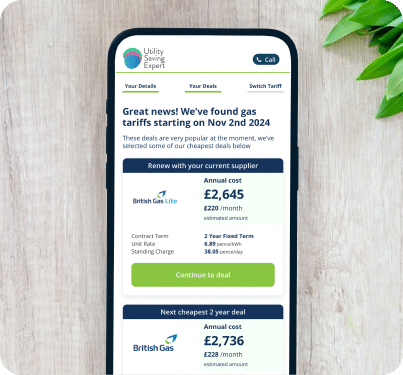Energy Market Volatility: How to Protect Your Business from Price Hikes
As a proactive entrepreneur, you’re undoubtedly aware that navigating the ever-changing energy market landscape is essential for your business’s financial success. The importance of energy cost management cannot be overstated, especially given the inherent volatility of this critical industry.

Article Contents
Introduction: Understanding Energy Market Volatility and Its Impact on UK Businesses
Various factors contribute to energy market volatility, including fluctuating oil and gas prices, geopolitical tensions, regulatory changes, and evolving renewable energy technologies. These unpredictable elements can lead to sudden price hikes, which directly impact your business’s bottom line by increasing operational costs and reducing profit margins.
Being prepared for these fluctuations is imperative for maintaining stability and competitiveness in today’s dynamic marketplace. Proactive strategies to protect against energy price fluctuations are your safeguard against potential financial turbulence. Fortunately, there are several key steps you can take to shield your enterprise from the brunt of these market shifts.
Firstly, closely monitor global energy trends and developments to stay informed about potential shifts in supply and demand dynamics. Secondly, consider implementing energy efficiency measures within your organisation to reduce overall consumption and mitigate the impact of volatile prices. Lastly, explore alternative energy sources such as solar power or wind energy that may offer more stable pricing options while promoting sustainability.
By taking control of your business’s energy management strategy and staying ahead of market trends, you can ensure financial resilience in the face of market volatility.

Compare Business Energy Prices, Suppliers & Rates

Assessing Your Current Energy Tariff and Identifying Potential Savings
Are you weary of those pesky business energy bills gnawing at your company’s profits? It’s high time to take control by assessing your current energy tariff and identifying potential savings. With the right approach, you can unlock a treasure trove of cost-effective solutions that will boost your bottom line.
Start by scrutinising your existing energy contract, pinpointing areas where it may be inefficient or outdated. Are you getting the best possible deal in today’s competitive market? Comparing tariffs and suppliers is of paramount importance; don’t settle for anything less than a perfect fit tailored to your business needs.
Renewable energy options offer immense potential for savings while bolstering your eco-friendly credentials. Solar power, wind energy, and other green alternatives provide long-term stability and benefits that can outweigh traditional fossil fuel-based energy sources.
But don’t stop there! Identifying potential savings through energy efficiency measures is another crucial step. Retrofitting office spaces with LED lighting or smart thermostats not only reduces consumption but also curtails your exposure to volatile energy markets.
Innovative technology solutions are the cherry on top, enabling you to optimise energy consumption like never before. Embrace cutting-edge tools such as real-time monitoring systems, automated controls, and demand-response programs to achieve unparalleled efficiency.
The key takeaway: Don’t let energy market volatility leave you vulnerable. Assess your current business electricity tariff, explore renewable options, and adopt state-of-the-art technology to supercharge your business’s cost management strategy. The result? A leaner, greener, and more profitable enterprise.
Adopting Flexible Energy Contracts to Mitigate Price Hikes
In the bustling world of business, savvy entrepreneurs recognise that energy price fluctuations can have a dramatic impact on their bottom line. To mitigate these risks, adopting flexible energy contracts has become more crucial than ever. Are you prepared to unlock the myriad benefits of these adaptable agreements?
Understanding your business’s risk tolerance is key when it comes to navigating the unpredictable energy market. By customising your energy contract to suit your unique needs, you’ll be well-equipped to handle any turbulence that comes your way.
A demand-side response strategy empowers you to reduce costs during peak periods by intelligently managing your energy consumption. Harnessing this innovation ensures that you stay ahead of the curve and maintain a competitive edge.
But wait, there’s more! Power Purchase Agreements (PPAs) offer an ingenious solution for securing long-term energy prices. With PPAs in place, you can confidently plan for the future and protect your business from sudden price hikes.
In summary, adopting flexible energy contracts is a game-changing move for businesses seeking stability amidst volatile markets. By assessing your risk tolerance, customising contracts to meet specific needs, implementing demand-side response strategies and utilising PPAs, you’re poised to thrive even in times of uncertainty.
Like what you’re reading? Get more in our monthly newsletter!
Get the latest news and articles straight to your inbox from Utility Saving Expert
Collaborating with Suppliers that prioritise Sustainability
In today’s rapidly evolving business landscape, sustainability and community involvement are no longer mere buzzwords. They have become essential cornerstones for companies seeking to carve a niche in an increasingly competitive market. Partnering with suppliers that prioritise these values not only bolsters your brand reputation but also contributes to tangible cost savings and long-term benefits.
Embracing sustainable practises can significantly reduce energy costs for your business. By aligning with suppliers that invest in renewable energy sources, you’re tapping into stable, eco-friendly power alternatives that shield you from the whims of volatile fossil fuel markets. Moreover, these partnerships signal your commitment to environmental stewardship, which resonates with an ever-growing number of eco-conscious consumers.
Ethical and socially responsible practises should be another key consideration when choosing suppliers. Aligning with partners who share your values not only results in stronger collaboration but also helps create positive change across the supply chain. These partnerships foster a values-driven culture within your business, reinforcing your dedication to operating responsibly and ethically.
Supporting local communities through supplier partnerships is yet another powerful strategy for businesses seeking to make a difference. By choosing local suppliers that share your commitment to community engagement, you’re contributing to the growth and prosperity of the areas where you operate. This approach fosters goodwill among consumers while also promoting a more sustainable, locally focused economy.
Implementing Energy Management Strategies to Protect Against Price Hikes
Do you ever feel the crushing weight of energy price hikes looming over your business? Fear not! With the right energy management strategies in place, you can shield your enterprise from these unwelcome fluctuations and secure a brighter future. Allow me to introduce you to the key tactics that will protect your bottom line.
First and foremost, monitoring and managing your energy consumption is vital for any business looking to conquer today’s volatile energy landscape. By dedicating time and resources to this process, you’ll uncover hidden inefficiencies that may be draining your profits.
Next, adopt energy efficiency measures that reduce usage and costs. This could include upgrading to LED lighting, installing smart thermostats, or even rethinking processes within your organisation. By making these changes, you’re not only saving money but also contributing to a greener environment.
Here’s a powerful secret weapon: smart meters and other technology solutions that provide real-time energy data. With instant access to your consumption patterns, you’ll be able to pinpoint areas for improvement and swiftly adapt to changes in the market.
Of course, all these efforts should be underpinned by a comprehensive energy management plan designed specifically to mitigate the risks associated with energy market volatility. This plan should involve continuously reviewing and adjusting your strategies to stay ahead of market changes – because when it comes to energy prices, complacency is truly the enemy!
In summary, implementing robust energy management strategies is essential for safeguarding your business against price hikes. By closely monitoring consumption, adopting efficiency measures, utilising cutting-edge technology, and developing a proactive management plan, you’ll ensure that your enterprise remains resilient in the face of an unpredictable market.
Safeguarding Your Business from Energy Market Volatility
Safeguarding your business from the relentless waves of energy market volatility is more than a prudent move; it’s a necessity. by adopting proactive energy management strategies and prioritising sustainability, you’re not only shielding your business from price hikes but also fostering long-term success.
Recall the key steps to brace against these price fluctuations: monitoring and managing energy consumption, adopting energy efficiency measures, utilising smart meters for real-time data, and developing an energy management plan that is continuously reviewed and adjusted. These strategic moves will provide a stable foundation for your business amidst an ever-changing market landscape.
The benefits of proactive energy management extend far beyond financial savings. Embracing sustainability and community involvement fosters an atmosphere of responsibility that resonates with customers and stakeholders alike. This values-driven approach can enhance your brand’s credibility and pave the way for lasting growth.
To stay competitive in the dynamic energy market, ongoing assessment and adaptation are essential. Remember, complacency is the enemy of progress. By staying informed, agile, and responsive to market changes, you’ll safeguard your business’s future while also making a positive impact on both the environment and local communities.
So, take charge today! Employ these robust strategies to ensure that your enterprise remains resilient in the face of uncertainty, reaping the rewards of reduced costs, enhanced reputation, and sustainable success. After all, isn’t that what every business owner dreams of achieving?
To monitor energy market trends and anticipate price fluctuations, you can subscribe to industry newsletters, follow reputable news sources, and consult with energy analysts. Additionally, utilise market analysis tools and attend conferences to stay up to date on the latest developments in the energy sector.
Energy market volatility is influenced by several factors, including geopolitical events, natural disasters, changes in government policies, supply and demand imbalances, technological advancements, and currency fluctuations. Understanding these factors will help you prepare for potential price changes.
To switch to a more cost-effective energy supplier without causing disruption to your operations, begin by researching potential suppliers and comparing their pricing structures, contract terms and customer service capabilities. Engauge in dialogue with prospective business gas suppliers to ensure a smooth transition before making any final decisions. Notify your current supplier of your intent to switch and coordinate the handover process while maintaining clear communication with all parties involved.
Adopting renewable energy solutions for your business offers numerous benefits such as reduced energy costs, increased long-term stability due to less reliance on fossil fuels, enhanced brand reputation as an environmentally responsible organisation and potential access to government incentives or subsidies. Additionally, these solutions contribute positively towards global efforts in combating climate change.
Your business can contribute to local community development and environmental sustainability through various energy management strategies such as investing in renewable energy sources, implementing energy efficiency measures, partnering with suppliers that prioritise sustainable practises and engaging in community outreach initiatives that promote environmental awareness. By integrating these strategies into your business operations, you will not only improve your bottom line but also foster a positive impact on society and the environment.
